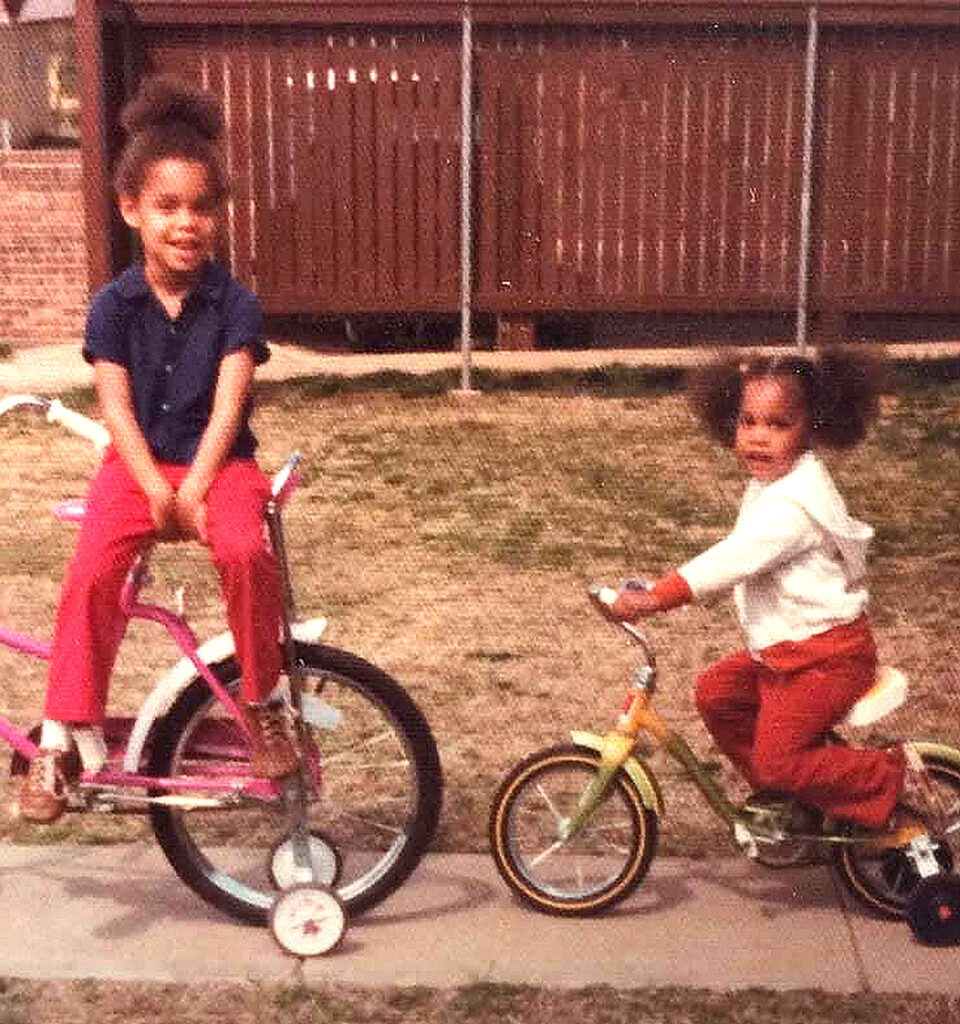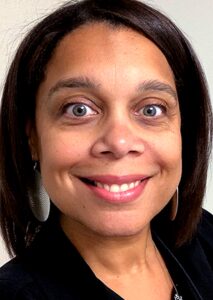‘I’m certain that being called a ‘n—–‘ and experiencing hate many times in the past 47 years of my life has contributed greatly to my feelings of insecurity and lack of acceptance’
MICHELLE OSTERHOUDT
Principal, Former Oneonta Council member, NAACP vice president
Living With
The ‘N-Word’

By MICHELLE OSTERHOUDT • Special to www.AllOTSEGO.com
Many people seem to believe that if one supports the Black Lives Matter movement, they cannot also be pro police. I disagree. And I refuse to participate in the vitriol currently being spewed by both sides. As a person of color, I am all too familiar with being the victim of hate because of the color of my skin. As the relative of a police officer, I am all too familiar with the risk and danger of an often thankless job. The following article shares these views.

My first experience with racism occurred when I was just 5 years old while I was outside playing. A little boy, about the same age, approached me and simply said, “I can’t play with you because you are a nigger.” At the time, I didn’t know what that word meant, but I understood it wasn’t meant to be kind. I did know right away that that little boy was not allowed to play with me because I was in some way different from him. I eventually learned that it had to do with the color of my skin.
Years later I was on a school bus — I was probably nine or ten years old at the time – when an upperclassman, cute and popular, walked by my sister and I on the bus. He mumbled something followed by the word, “niggers.” When he said it, my heart sank in my chest. I felt my face turn red and I looked in his direction. At that same moment, he looked at me. He appeared slightly embarrassed, averted his gaze, and laughed with his friends. My sister and I were the only people of color on the bus at the time and I never talked about that experience with anyone, not even my sister—who I am sure didn’t hear him. I remember not wanting to ride the bus after that. There were several incidents like that that I recall from childhood and my teen years. I never talked about them. This was the price of being the minority—not having anyone to talk to about those experiences.
As an adult, I was the target of racist remarks that took an even more hateful tone. I recall another experience in my late 30s –now married and a mom. I was on a leisurely jog with a friend when someone drove by us in a car and called me a “half breed nigger.” I was frightened, shaken, and incredibly saddened. Flash forward to summer 2020: I was in my car with my daughter having fun on a membership drive for our local NAACP. A truck drove past and a man yelled out, “nigger!” I was again shocked and hurt. I ignored it and tried to block it out of my mind. It wasn’t until the next day while on my way to work, that the weight of the experience overwhelmed me.
I pulled over and called my sister and my husband. I could barely tell my husband what happened before I broke down and sobbed over the phone. I felt foolish for crying. I felt foolish for letting someone make me feel so little. I shared my story at the Juneteenth celebration that summer. I wanted people to know that these types of things still occur. I wanted people to know that in my town where I’ve always felt relatively safe, that there were people who felt they could attack me and make me feel less than human.
I can tell by the reaction of some that they think I’m making a big deal out of “words.” But imagine, just imagine, being the victim of such hate talk from a young age up until you are almost 50 years old. Anyone who is educated or pays attention to history understands the hate behind the word “nigger.” I’m certain that being called a nigger and experiencing hate many times in the past 47 years of my life has contributed greatly to my feelings of insecurity and lack of acceptance. While I maintain that I’m pretty content with my beautiful family and the life my husband and I are creating for our children, I hustle to be the best I can be – always trying to prove I’m good enough, I’m smart enough, and that I matter.
I share my experiences so that people can understand how frightening it is to watch the news and see young black men and women terrorized and killed over and over again on camera. I share my experiences so that people understand where I’m coming from when I worry about my children, particularly my son who is a young brown man. Know that my history shapes who I am, how I perceive what I see and hear in the media, and why I feel that there is a systemic problem in our country.
But also know that I have empathy for those who serve and protect us every day. I understand why Back the Blue exists. There are plenty of good cops out there. I share with you a personal story from a family member of mine who recently retired after serving 25 years as a police officer. His thoughts are below:
“On Black Lives Matter: My observations, dealings, and opinions on BLM are rather negative. I understand the meaning or initial intent, but it seems it’s been hijacked into a political hornet’s nest of misplaced anger and some vile rhetoric (I’ve had some thrown at me). I think there’s a lot of misguidance and ignorance, I say to the public in general, on the dynamics of law enforcement, high stress incidents, and officers’ use of deadly force. I agree – and 99 % of cops I know agree – that reform is needed.
“There have been and will be awful and malicious incidents of police misconduct, which is hurtful and needs appropriate dispositions. But law enforcement deserves due process just like everyone else. Please know that what you see in a 5 second video on your cell phone is not giving you the whole story, so to speak. I don’t think people understand that in a high stress situation, a cop can make a poor decision, not racially motivated or malicious in nature, but due to the dynamics of excited delirium or past history (we get shot at and assaulted, people fight or run, etc.). I’ve been in numerous deadly force and high stress situations – thank Christ I made it out and survived.
“What I do as a justified use of force, Joe or Jill Citizen may not, because they have probably never been in a high stress situation or confrontation, or been in my shoes. I see things now as one-sided in the media. I think the public needs to learn how to handle their behavior towards law enforcement, and both sides need to approach this with some civility and mutual respect. My experiences (as an officer) overall were positive, but the tension and disrespect towards police became elevated to the point that my heart couldn’t take it anymore.
“The hardest thing for me to deal with over the past 2 decades was death. It’s the job I chose, so I’m not complaining, but to see people maimed and killed in various ways crushes one’s soul and can affect their empathy.”
-Retired Officer
I feel very fortunate that I can see both sides. I feel very fortunate to be able to have these discussions with someone who lived the life of a police officer. I continue to have these discussions with current officers. I wish everyone could have the conversations that we have and understand that this isn’t “us” against them. If we listen – really listen – to each other, we can affect positive change together.


Thank you so so much for your painful personal story of racism. It is so important that these issues are brought to the individual level so those who have no experience with such hate can see how it has been a painful struggle for decades. And right here in our community. It is so sad to realize that so many people have been the focus of such narrow minded thinking.
Thank you for your kind response.